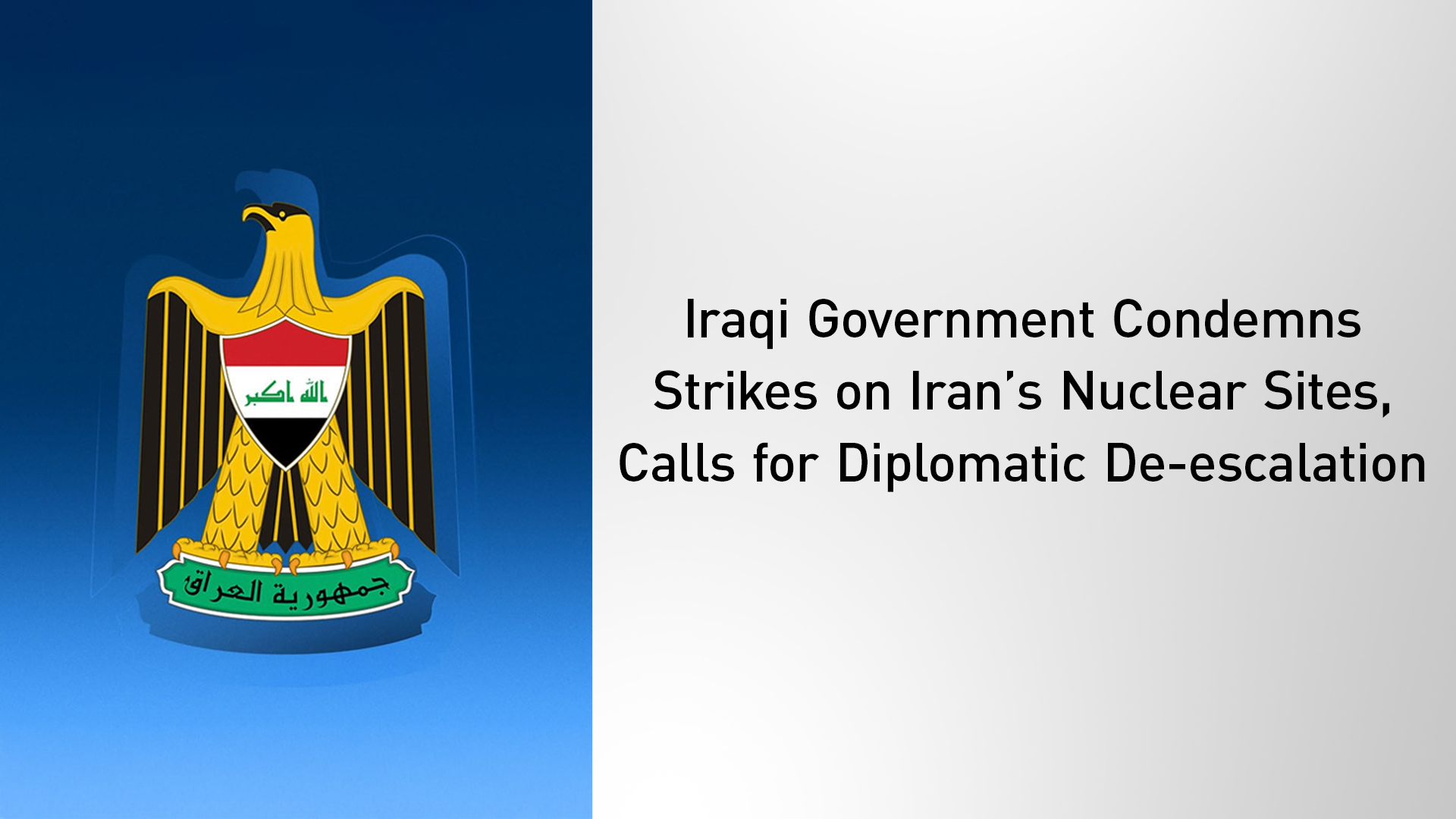Iraqi Government Condemns Strikes on Iran’s Nuclear Sites, Calls for Diplomatic De-escalation
Iraq condemned U.S. and Israeli strikes on Iran’s nuclear sites, calling them a threat to regional peace. Baghdad urged de-escalation and diplomacy, warning against military solutions. The U.S. also began reducing diplomatic staff in Iraq amid rising tensions.

By Kamaran Aziz
ERBIL (Kurdistan24) — The Iraqi government has strongly condemned the recent airstrikes on nuclear facilities in the Islamic Republic of Iran, warning that such actions constitute a grave threat to regional peace and stability. In an official statement issued on Sunday, June 22, 2025, government spokesperson Basem al-Awadi emphasized Iraq’s rejection of military escalation and urged a return to diplomacy.
"The Iraqi government expresses its deep concern and condemnation of the targeting of nuclear facilities within the territory of the Islamic Republic of Iran, and affirms that this military escalation represents a serious threat to peace and security in the Middle East region and poses grave risks to regional stability," al-Awadi said.
He reiterated Iraq’s principled opposition to the use of force in international relations and called for the protection of sovereign infrastructure. "Iraq reiterates its principled rejection of the use of force in international relations and calls for respect for the sovereignty of states and the non-targeting of their vital facilities, especially those under the supervision of the International Atomic Energy Agency and used for peaceful purposes."
The spokesperson stressed that military options cannot replace diplomatic engagement: "Iraq also stresses that military solutions cannot substitute for dialogue and diplomacy, and that the continuation of such attacks could lead to a dangerous escalation with consequences that extend beyond the borders of any one state and jeopardize the stability of the region and the world."
Al-Awadi issued a reminder about the long-term costs of conflict, urging international actors to prioritize stability. "Iraq reminds that wars leave behind nothing but destruction, and that the responsibility of major powers and international institutions should focus on preventing further crises—not igniting them."
He concluded with a call for immediate de-escalation and diplomatic engagement: "From its position of responsibility toward regional and international peace and stability, Iraq calls for immediate de-escalation, the urgent opening of diplomatic channels to contain the situation, and efforts to defuse the crisis in a way that ensures mutual security and respects international law and the Charter of the United Nations."
The statement was issued amid rising regional tensions following U.S. and Israeli strikes on Iranian nuclear infrastructure, drawing widespread concern from regional governments and international observers.
In parallel developments, a U.S. official confirmed to AFP that more American diplomatic personnel departed Iraq over the weekend as part of a broader effort to reduce embassy staffing “out of an abundance of caution and due to heightened regional tensions.” The departures, which took place on June 21 and 22, were described as a continuation of streamlining operations that began earlier in the week. The U.S. embassy in Baghdad and consulate in Erbil remain operational.
The drawdown comes as President Donald Trump announced that the United States had launched coordinated airstrikes against Iran’s primary nuclear facilities, joining Israel in what has become an escalating military campaign. Iran has since warned that U.S. bases across the region could become targets if the conflict expands.
Fears are growing in Iraq over possible retaliatory action from Iran-backed armed factions, many of which have previously targeted U.S. interests within Iraq. With Baghdad navigating a delicate balancing act between its ties to Washington and Tehran, the country risks being drawn deeper into a widening regional conflict.
Iraq has long served as a geopolitical arena for proxy confrontations between the United States and Iran, and current developments have raised alarm over the country’s stability and security amid the spiraling crisis.
